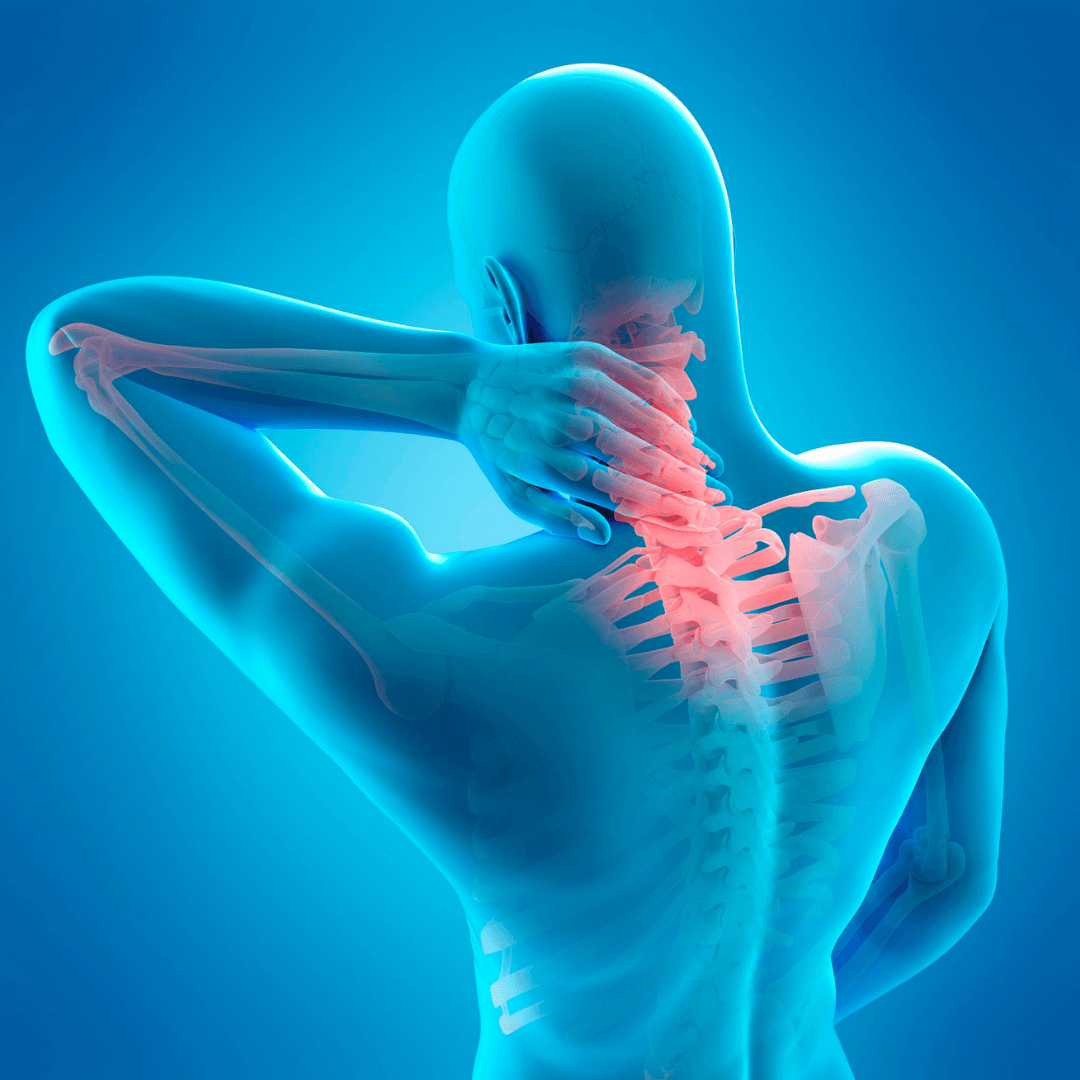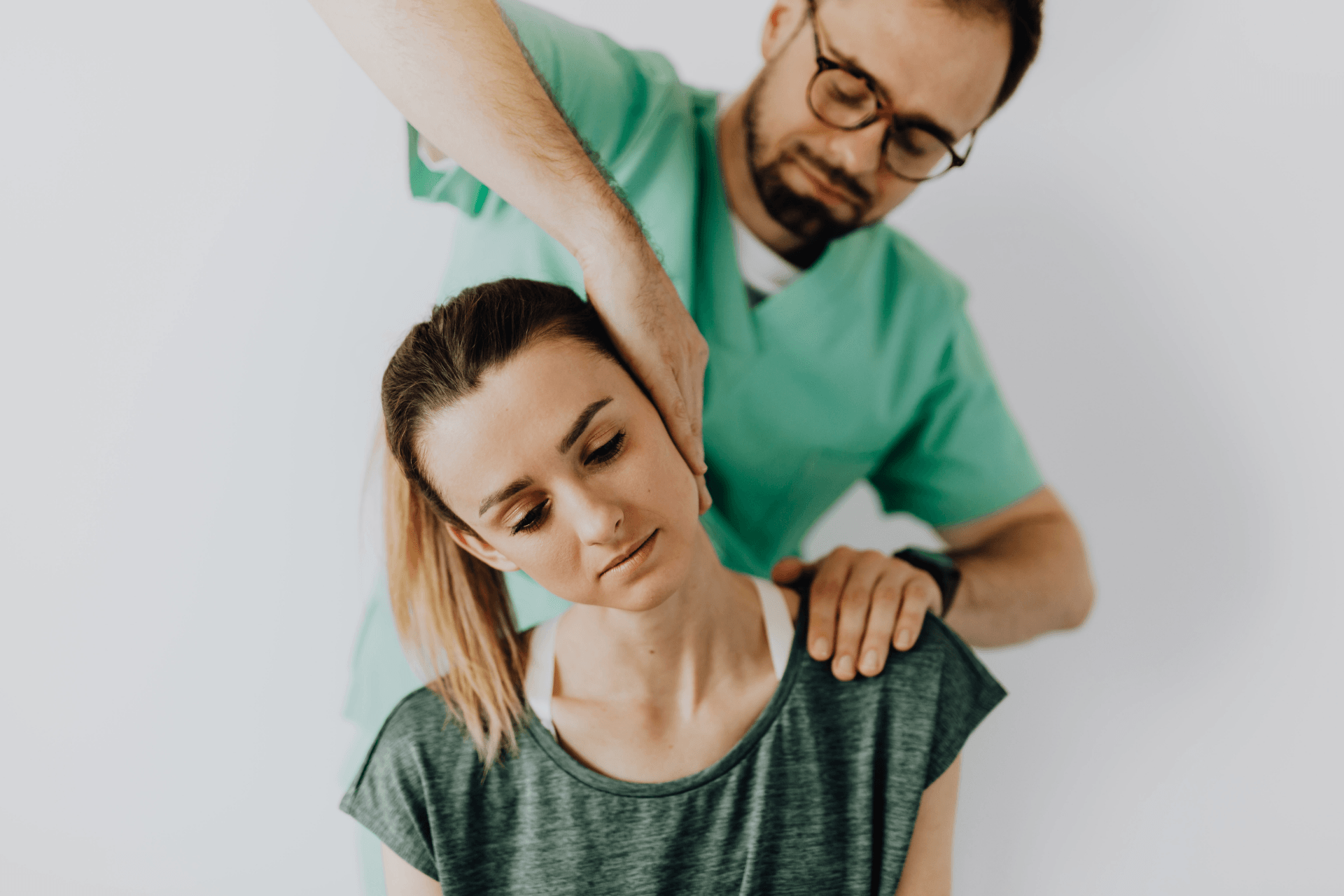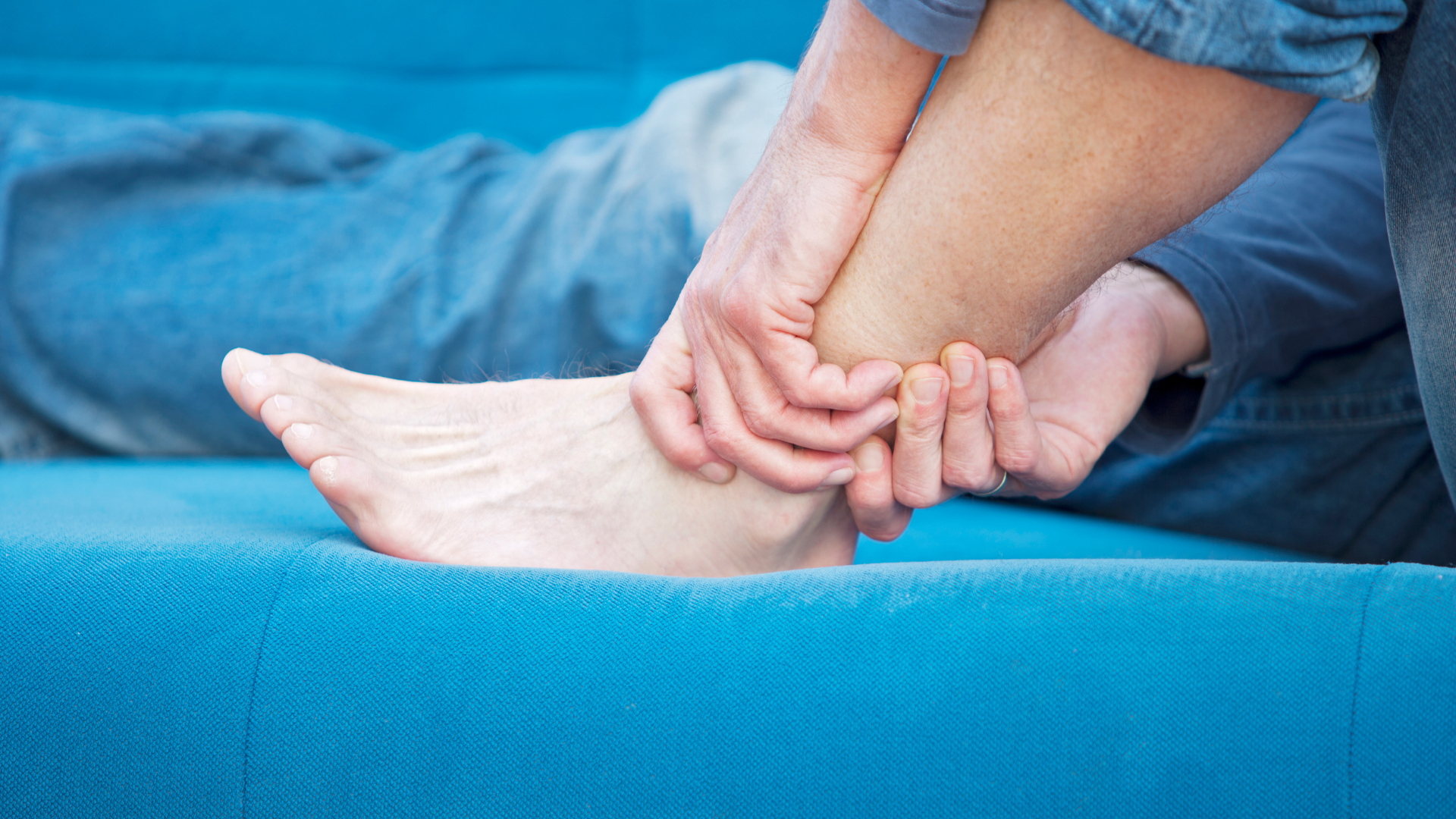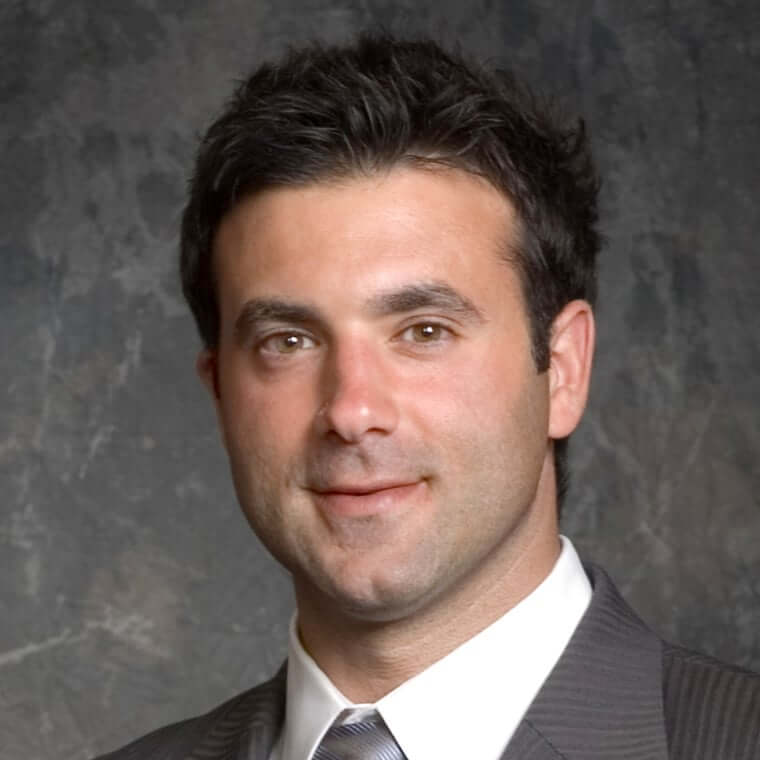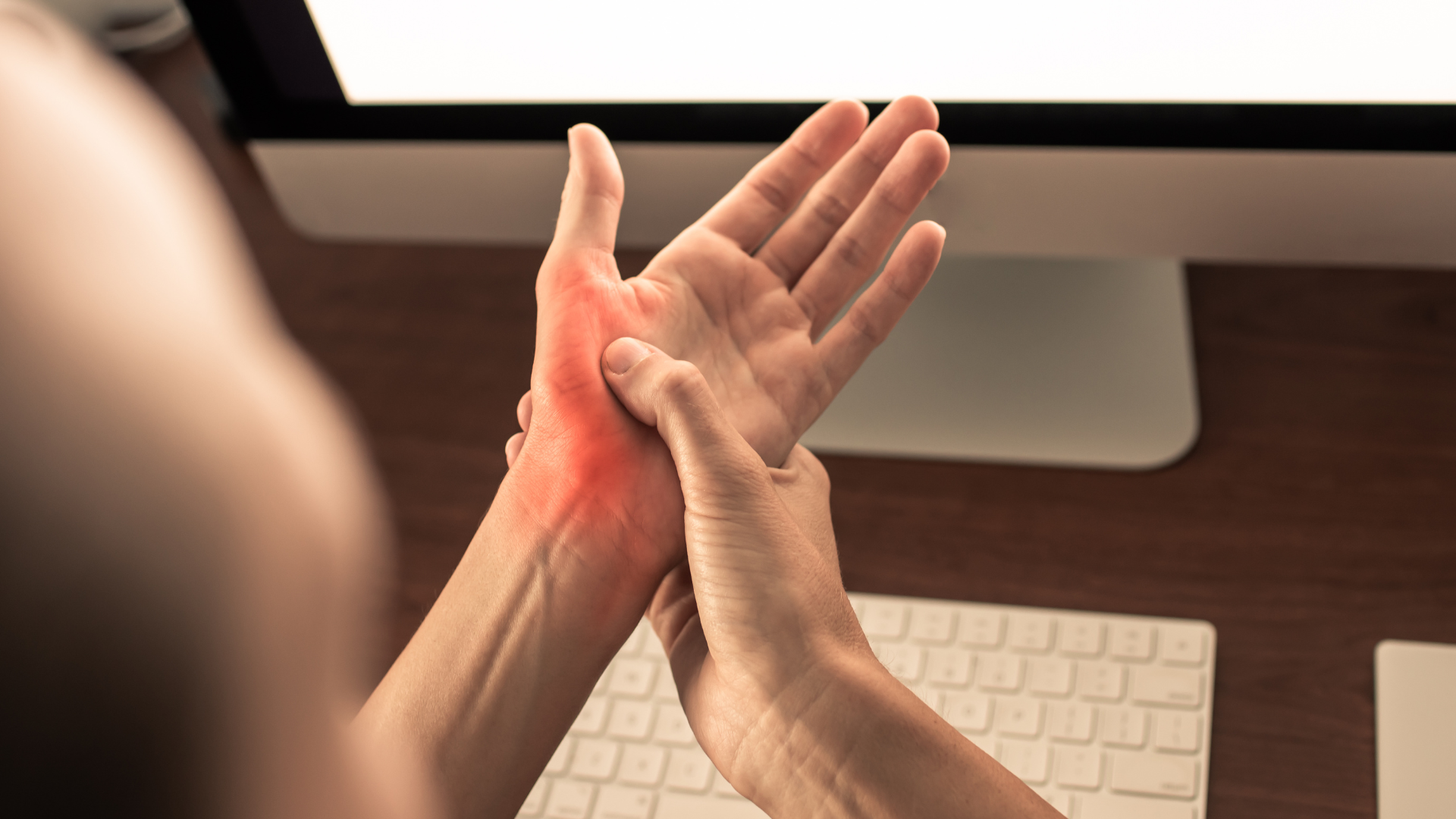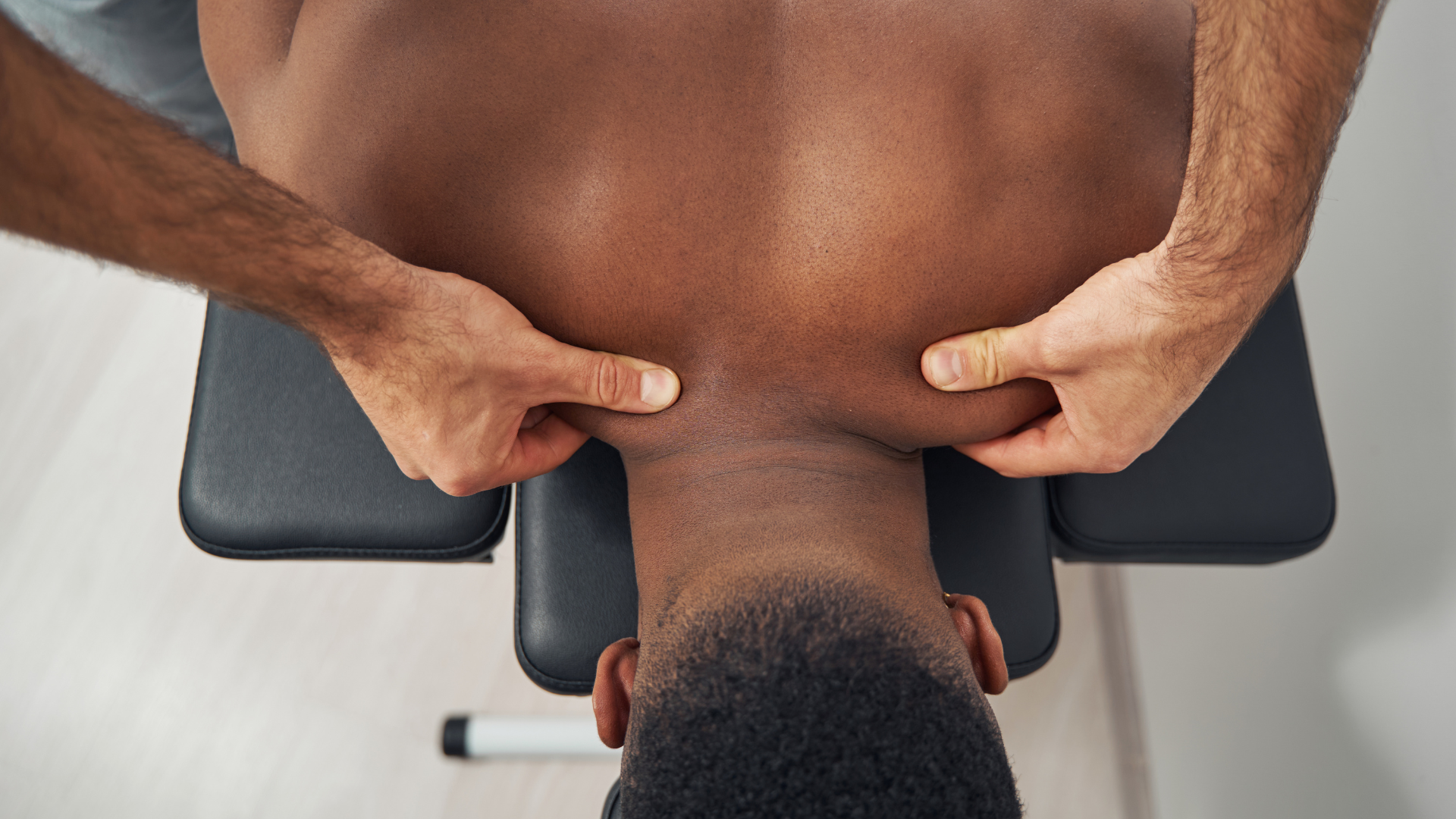Neck pain is a common complaint with lots of causes. It affects about
30% of adults in the U.S. each year. Neck pain is usually felt in the back of the neck and can be associated with radiating pain down the upper back, shoulder, and arm. Your neck contains seven small vertebrae that extend from the base of the skull to the upper torso. In between the vertebrae are discs that absorb shock. The bones, muscles, and ligaments of your neck support the full weight of your head and allow for motion. Any injury, inflammation, irritation, abnormalities, or overuse can cause neck pain or stiffness. The pain can range from minor to excruciating and debilitating.
Causes of Neck Pain
Neck injuries can occur during automobile accidents, sports, falls, or other traumatic events, where the head is forced to move forward and/or backward outside of the normal range of motion. The sudden motion of the neck causes the muscles and ligaments to tighten, creating muscle fatigue, pain, and stiffness. Other causes of pain are fractured neck bones, damaged discs, or ligament rupture.
- Muscle Tension and Strain
Activities and behaviors such as poor posture, hunching over your computer for too long, jerking your neck while working out, or sleeping with your neck in a bad position can lead to neck pain. Even minor things like reading in bed or clenching your teeth can strain neck muscles.
Obesity and stress may be the cause of your neck pain. Extra weight puts undue stress on the spine, which will not be supported by weak abdominal muscles. This may disrupt spinal balance and cause the neck to bend forward. Also, if you’re stressed or emotionally tenses, you may be clenching the muscles that move your neck without being aware of it, potentially causing pain and stiffness.
Osteoarthritis is a joint disorder that causes progressive degeneration of cartilage or wear-and-tear. Called cervical spondylosis when it affects the neck, osteoarthritis causes the cushions between your cervical discs to deteriorate. This causes excessive friction in the neck’s facet joint and creates bone spurs (osteophytes) that crowd the spinal canal and press on nerves branching out from the spinal cord. Rheumatoid arthritis can also affect the cervical spine by causing inflammation and reduced joint movement.
This occurs when the spinal column narrows, compressing and trapping nerve roots as it exits the vertebrae. Spinal stenosis may be caused by long-term inflammation or a health condition. It can lead to pain in the neck, arm, or shoulder as well as numbness.
Treating Neck Pain with Chiropractic Care or Physical Therapy
Physical treatment is generally the first line of defense against neck pain. In fact, it’s often all that’s needed to manage and relieve discomfort.
A chiropractor can help reduce your neck pain by delivering an all-natural, non-invasive therapy known as chiropractic neck adjustment. The adjustments involve loosening up joint restrictions to help reduce neck pain caused by pinched nerves and muscle spasms. Conversely,
physical therapy involves an exercise program of strengthening and stretching the neck to reduce stiffness and pain. Your physical therapist will show you how to improve posture, strengthen your neck, and prevent neck pain from recurring. The methods and exercises used, as well as the duration of the treatment, will depend on a person’s particular situation.
Professional physical therapy and chiropractic treatments are safe, non-invasive options that can help people avoid medication and surgery altogether. In addition to reducing neck pain, these treatment options address the root cause of your problem.
If you suffer from neck pain, the skilled and experienced team at Advanced Physicians can help. A chiropractor or physical therapist will perform a consultation, examination, and diagnostic imaging, if necessary. Based on the finding, a treatment plan will be developed to improve your quality of life.
Contact us today to learn more or to
book an appointment.

